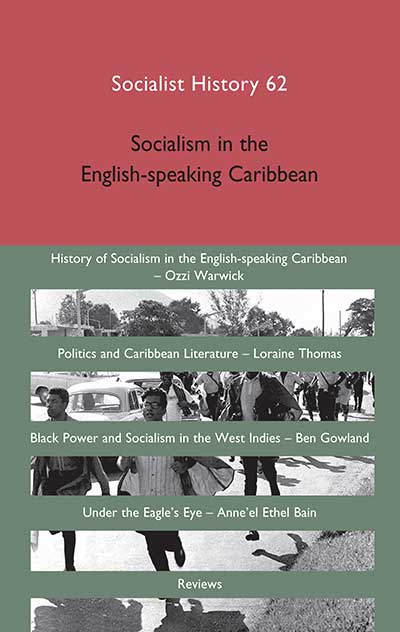
Black Power and Socialism in the West Indies
Socialist History - Print ISSN 0969-4331 - Online ISSN
Volume 2022 Number 62
Black Power and Socialism in the West Indies
Ben Gowland pages 63‑84
Abstract
This piece examines articulations of socialist politics and theory by West Indian Black Power groups and actors. It positions the emergence of Black Power in the West Indies in the late 1960s in the context of the global upsurge in revolutionary activity often associated with 1968 and the various socialist-inflected protest movements that emerged at that time. It shows how Black Power groups and thinkers in the West Indies deployed a socialist analysis of the post-colonial nation-states of the region which gained independence in the 1960s and 1970s. Analyses of neo-colonialism in the Caribbean, and the Global South more broadly, developed by Black Power groups and thinkers and articulated through a Black Power politics, made a core contribution. West Indian Black Power’s anti-capitalist and anti-imperialist politics and thought saw that race and class oppression were inseparably intertwined in the region. From this theoretical position emerged an interest in and commitments to solidarity with socialist revolutions and struggles across the Global South in the 1960s and 1970s. This article examines West Indian Black Power’s solidarity with anti-colonial struggles in Africa and its interactions with the Cuban Revolution.
SORRY - you are not registered as being permitted online access to the full text of this article
You have the following options:
- If you are viewing this via an institution or academic library you can ask that your institution takes out a Subscription to this journal.
- If you already have a Personal Subscription please login below
Forgotten your username / password? Click here to locate
- Subscribe to Socialist History via the Socialist History Society website. An annual UK print subscription is £30.00.
To cite this article
Ben Gowland (2022) Black Power and Socialism in the West Indies, Socialist History, 2022(62), 63-84
